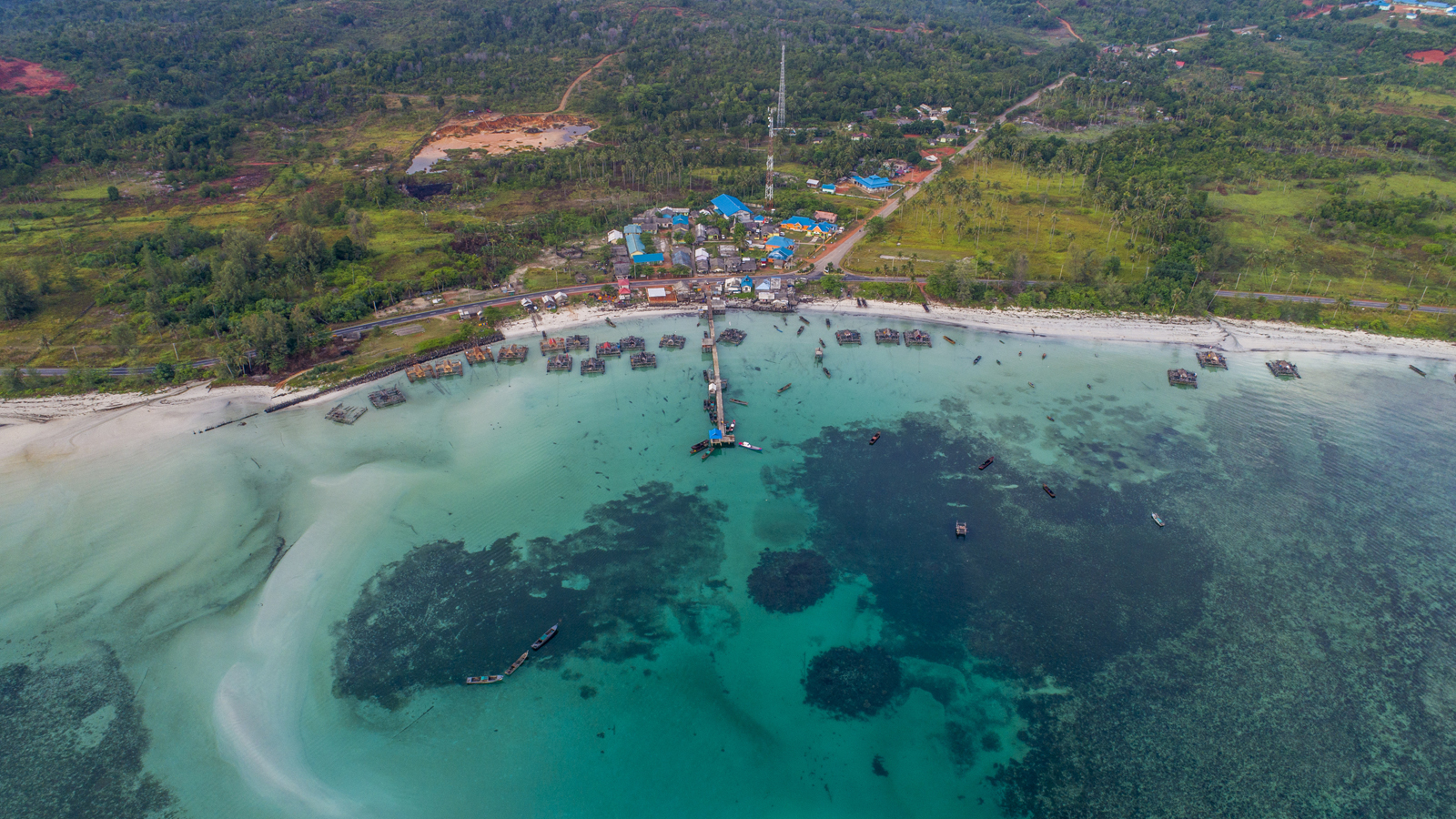Working with community organizations in Singapore to improve the environment and economy

Microsoft is committed to supporting organizations, causes, and projects in the communities that are home to Microsoft operations. Microsoft recently invested in several community programs supporting environmental, job skilling, digital education, and revitalization projects in Singapore.
YEKR and Seven Clean Seas creates a plastic credit program
The charity YEKR ( Yayasan Ecology ) received funds from Microsoft to work with Seven Clean Seas (SCS), initially focusing work on the Island of Bintan to enact robust ocean plastic cleanup capabilities, community level plastic interception strategies, and coastal community waste management. SCS’s is also building a redeemable coupon system which allows for the deposit of clean household plastic waste; in return, people are offered bulk rice and refillable water containers. This not only benefits vulnerable families who struggle with the price of basic plastic-wrapped commodities, but also extends the potential collection capabilities of the project. Companies can also reduce their plastic impact by purchasing plastic credits; in exchange, SCS will remove plastic from marine areas which is then processed at a materials sorting facility. These marine-adjacent areas are often unable to use traditional waste management as the economics don’t support it, so plastic credit-funded projects circumvent this challenge. This plastic offsetting will result in not just less plastic entering the natural environment, but also less plastic being consumed by businesses and in products.This will reduce plastic leakage and the harm it causes to marine ecosystems.
Zero Waste Singapore encourages schools to create waste reduction plans
Singapore has also identified that many schools do not follow up on sustainability education by ensuring students take part in the daily 3Rs (reduce, reuse, recycle). With Microsoft support, Zero Waste Singapore launched its inaugural Sustainable Schools Competition, where schools engage in a friendly competition to drive long-lasting behavioral change towards day-to-day sustainability. According to Zero Waste Singapore, “Through this competition, we hope to equip students with skills to implement successful projects, collect data and drive cultural change amongst school stakeholders.” Five finalist schools were selected to implement their solutions to drive toward zero waste, with final results forthcoming.
Seven Clean Seas and Zero Waste Singapore partner to improve clean up efforts
In a joint project with Seven Clean Seas and Zero Waste Singapore, efforts were made in Johor, Malaysia to provide coastal clean up, plastic collection, and community education activities in a financially sustainable manner. The project allowed Seven Clean Seas to host six community beach clean up events and provide 10 education sessions domestically in Singapore.
Digitally Ready Families helps parents and children improve communication and digital skills
In order to improve digital skilling, Microsoft is supporting the Digitally Ready Families (DRF) program by Touch Community Services. DRF will offer workshops and engagement to provide both parents and children with the skills to use basic digital platforms, cyber-wellness resources to effectively manage their use of digital platforms, and parent-child communication that helps manage children’s device use, starting with a pilot of 16 households, followed by 44 more. “The communication skills I’ve learnt have helped me to better manage my daughters’ device use. I have also learnt how to navigate websites and do some research to get more information, like resources and courses online,” explained one participant, and over 60 percent of participating families reported fewer tensions in the home.
Generation Singapore upskills workers displaced by the pandemic and prepares them for fresh careers in tech
Generation Singapore, a non-profit organization with a mission to prepare, place, and support people in life-changing careers that would otherwise be inaccessible, has implemented several programs with the support of Microsoft. First, a new initiative called #GetReadySG was launched with multiple government entities (like EDB, IMDA, SSG), with the aim to address the demand-supply gap for local skilled talent in tech and a need to align government policies with employers’ business models. Over a two-year pilot, three priority tech programs were launched, including for Junior Full Stack Developers, Cloud Support and DevOps, and Junior Data Engineers, equipping 1,000 underserved jobseekers with relevant skills for the future of work. Generation Singapore also partnered with Microsoft, Grab, and Temasek Polytechnic to upskill learners through eight months of training, including full-stack fundamentals, Java programming, and UI/UX concepts. Participants will also prepare for Microsoft Learn certifications. Syaffi, one of the program participants who spent a decade of his career in digital media and was laid off due to the pandemic, shares that after securing a tech job, “If you had told me four months ago that I’d be hired as a software developer eight months into the pandemic, I probably wouldn’t have believed you. What I learned here is worth a million bucks!”
The APAC AI for Accessibility Hackathon improves AI-driven assistive technology
APAC Annual AI for Accessibility Hackathon was created out of the knowledge that over one in ten people with disabilities do not have the assistive technology they need. The hackathon, held virtually in October 2020, involved commercial and developer partners and S500 customers to develop AI-based technology for real world needs. These were outlined by 12 grassroots non-profit organizations across APAC countries. 578 participants from 181 teams across 11 countries developed solutions using the Microsoft cloud to meet assistive technology needs in the areas of employment, daily life, and communication and connection. Seven winning teams were chosen, with ideas like a navigation assistance tool for people with low vision, a Thai text-to-speech synthesizer, and an app with gamification to help people learn sign language using AI. One of the winners from Singapore summed up the project’s goals: “Accessibility means inclusivity. To my team, Accensible, it means providing barrier-free communications for all, including people with disabilities.”
“The communication skills I’ve learnt have helped me to better manage my daughters’ device use. I have also learnt how to navigate websites and do some research to get more information, like resources and courses online”
A Digitally Ready Families participant

